Getting an FHA Loan with a Chapter 13 Bankruptcy: A Complete Guide
If you’ve experienced financial difficulties in the past and filed for Chapter 13 bankruptcy, you may be wondering if homeownership is still within reach. Fortunately, one option for borrowers who have filed for bankruptcy is the FHA loan. FHA loans are backed by the Federal Housing Administration and are designed to make homeownership more accessible, even for those with less-than-perfect credit or a past bankruptcy.
In this comprehensive guide, we’ll explore how you can qualify for an FHA loan after filing for Chapter 13 bankruptcy, the specific requirements, and steps to improve your chances of approval. We’ll also cover common misconceptions about FHA loans and Chapter 13 bankruptcy.
What is a Chapter 13 Bankruptcy?
A Chapter 13 bankruptcy is a legal process that allows individuals to reorganize their debts and create a repayment plan. Unlike Chapter 7 bankruptcy, which involves liquidating assets to pay off debts, Chapter 13 allows debtors to keep their property while they repay creditors over a period of 3 to 5 years. Once the repayment plan is completed, the remaining eligible debts may be discharged.
While Chapter 13 bankruptcy offers a way to rebuild financial health, it can still affect your ability to get a mortgage. However, the Federal Housing Administration (FHA) provides a pathway for borrowers to secure a home loan even after filing for bankruptcy, provided they meet certain conditions.
What is an FHA Loan?
An FHA loan is a mortgage insured by the Federal Housing Administration, designed to help individuals with less-than-perfect credit, including those who have undergone bankruptcy. FHA loans are popular because they offer lower down payment requirements, more lenient credit standards, and competitive interest rates.
Benefits of FHA Loans:
•Lower Credit Requirements: FHA loans typically have lower credit score requirements compared to conventional loans.
•Low Down Payment: Borrowers can often qualify for FHA loans with a down payment as low as 3.5%.
•Flexible Guidelines: FHA loans are more forgiving when it comes to past financial issues, including bankruptcy and foreclosure.
Can You Get an FHA Loan After Chapter 13 Bankruptcy?
Yes, it is possible to qualify for an FHA loan after Chapter 13 bankruptcy, but there are important criteria you need to meet. While FHA loans are more flexible than conventional loans, lenders will still evaluate your creditworthiness and financial situation carefully.
FHA Guidelines for Borrowers with Chapter 13 Bankruptcy
The FHA guidelines are typically more lenient compared to conventional loans, especially for applicants who have faced financial difficulties. Here are the key requirements for obtaining an FHA loan after a Chapter 13 bankruptcy:
1. Completion of the Chapter 13 Plan or 12-Month Payment History
•If Your Chapter 13 Plan is Active: You may be eligible for an FHA loan if your Chapter 13 bankruptcy is still active, provided you have made 12 consecutive months of on-time payments under your repayment plan. The lender will require documentation of these payments, and you may also need to get approval from the bankruptcy court to proceed with the loan.
•If Your Chapter 13 Plan is Discharged: If you’ve successfully completed your Chapter 13 plan and received a discharge, you can typically apply for an FHA loan immediately after your discharge. The discharge confirms that you have successfully completed your repayment plan.
Note: Lenders will want to see that you have been in good standing throughout the Chapter 13 repayment period. Missing payments or not following the plan can make it more difficult to qualify.
2. FHA Lender’s Discretion
While the FHA sets the general guidelines, individual lenders may have additional requirements. Some lenders may have stricter policies regarding the timing of bankruptcy discharge or the amount of time that has passed since the completion of your Chapter 13 repayment plan. It’s essential to work with an FHA-approved lender who has experience working with borrowers’ post-bankruptcy.
3. Proof of Re-established Credit
After a Chapter 13 bankruptcy, it’s important to show that you’ve re-established credit and have managed your finances responsibly. This could involve:
•Having an established credit history since the bankruptcy.
•Demonstrating responsible use of credit cards, auto loans, or other types of financing.
•A credit score above 580 can help, but in some cases, lenders may approve you with a score of 500 to 579 with a larger down payment.
The FHA does not require a minimum credit score, but many FHA-approved lenders prefer a score of at least 580 for easier approval with a 3.5% down payment. If your score is below 580, you may still qualify with a 10% down payment.
4. Debt-to-Income (DTI) Ratio
Lenders will also examine your debt-to-income (DTI) ratio, which is the percentage of your monthly income that goes toward debt payments. FHA guidelines typically allow for a DTI ratio of 43%, but this can vary depending on the lender and your specific circumstances.
A lower DTI ratio is preferable because it indicates that you have more financial flexibility to manage a mortgage payment. If your DTI is high, lenders may require you to pay down existing debts before approving your loan.
5. Stable Income and Employment
You’ll need to show that you have stable employment and sufficient income to repay the loan. Lenders typically look for a two-year employment history, preferably with the same employer or in the same industry. If you’ve recently changed jobs or career paths, you may still be eligible, but your employment history should show consistency.
Additional documentation, such as pay stubs, tax returns, and bank statements, will be required to verify your income.
6. FHA Appraisal
An FHA appraisal will be required to determine the market value of the property you wish to purchase. This appraisal ensures that the home is safe, structurally sound, and free of any significant defects. The FHA appraisal process is more thorough than a traditional home appraisal and ensures that the property meets certain safety standards.
Steps to Qualify for an FHA Loan After Chapter 13 Bankruptcy
1.Wait for Your Chapter 13 Discharge or Ensure You Have 12 Months of Payments
•If your Chapter 13 bankruptcy is still active, ensure you have made at least 12 months of on-time payments.
•If your Chapter 13 bankruptcy has been discharged, you can apply immediately, but make sure you have the discharge paperwork available.
2.Rebuild Your Credit
•Focus on rebuilding your credit after the bankruptcy by paying bills on time, maintaining low credit card balances, and responsibly using credit.
•Monitor your credit score and ensure there are no errors that could hurt your chances of approval.
3.Save for a Down Payment
•FHA loans typically require a down payment of 3.5% for borrowers with a credit score of 580 or higher.
•If your credit score is between 500 and 579, you’ll likely need a 10% down payment.
Saving for a larger down payment can strengthen your application, especially if your credit score is low.
4.Work with a FHA-Approved Lender
•Choose an FHA-approved lender that has experience working with borrowers who have had Chapter 13 bankruptcy. Your lender can help you navigate the application process and ensure you meet all requirements.
5.Gather Documentation
•Be prepared to provide various documents, such as:
•Bankruptcy discharge or payment history.
•Proof of income (pay stubs, tax returns).
•Proof of stable employment (two-year history).
•Bank statements and credit reports.
•FHA appraisal for the property.
6.Apply for Pre-Approval
•It’s a good idea to get pre-approved for a mortgage before shopping for homes. Pre-approval gives you an estimate of how much you can borrow and helps you understand your financial situation better.
Learn More About FHA Pre-Approval
Common Misconceptions About FHA Loans and Chapter 13 Bankruptcy
Myth 1: You Have to Wait Two Years After Bankruptcy to Get an FHA Loan
You don’t have to wait two years after your bankruptcy to apply for an FHA loan. As long as you have made 12 months of on-time payments under your Chapter 13 plan, you may be eligible for a loan.
Myth 2: FHA Loans Are Only for First-Time Homebuyers
FHA loans are available to both first-time and repeat homebuyers. If you’ve already owned a home, you can still qualify for an FHA loan, as long as you meet the eligibility requirements.
Myth 3: FHA Loans Are Too Expensive
While FHA loans require mortgage insurance, they often come with lower interest rates and more lenient requirements, making them an affordable option for many borrowers, especially those with a Chapter 13 bankruptcy.
Conclusion: Can You Get an FHA Loan After Chapter 13 Bankruptcy?
Yes, you can qualify for an FHA loan after a Chapter 13 bankruptcy, but it requires careful planning and meeting specific requirements. If you’ve completed your Chapter 13 repayment plan, you can apply for a loan immediately. If your Chapter 13 plan is still active, you may still qualify with at least 12 months of on-time payments.

